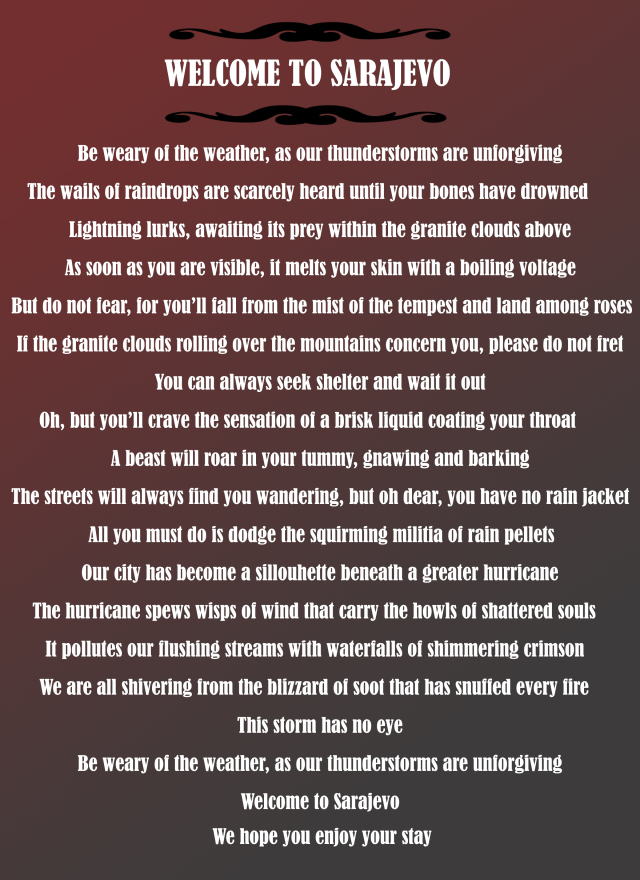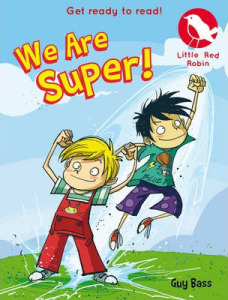My New Title Tuesday recommendation, The Unmade Bed: The Messy Truth About Men and Women in the 21st Century by Stephen Marche, made me curious to see how a man would “mansplain” the gender divide to women. But, he played it a bit safe by stating on the cover that his wife, editor Sarah Fulford, provided commentary on the book. OK, so it made me take a closer look.
What I found was a book by an insightful and witty writer who sees the problem of domestic life as not solely about gender-roles and the definition of motherhood and fatherhood, but as “the family against money” and how to hold the family together.
Publisher’s Summary: In response to books such as Anne-Marie Slaughter’s Unfinished Business, cultural commentator Stephen Marche examines the status of male-female relations in the twenty-first century—with the help of his wife, the writer and editor Sarah Fulford.
One warm spring
morning in New York City, Stephen Marche, then a new father and tenure-track professor, got the call: his wife had been offered her dream job…in Canada. Their mutual decision to prioritize her career over his and move home to Toronto shed new light on the gender roles in their marriage and in the world they saw around them. As Marche provocatively argues, we are no longer engaged in a war of the sexes, but rather stuck together in a labyrinth of contradictions. And that these contradictions are keeping women from power and confounding male identity.
The Unmade Bed is a deeply researched, deeply personal exploration into the moments in everyday life where women and men meet. After all, within offices and homes, on the street, online, and in bed, we constantly ask ourselves: Who has the power? How much can we say? What are we expected to sacrifice? Is it possible to be equal? As he attempts to answer these questions, Marche explores the phenomena that have come to define our modern conversations on gender, from mansplaining and sexual morality to parenthood and divisions of the domestic sphere. In the process, he discovers that amid all this chatter, we are not actually facing the real issues—that true power remains shockingly elusive for women while the idea of masculinity, trapped between iconographies of power and powerlessness, struggles in a state of uncertainty to the point where manliness and crudity are almost synonymous. The only way out of these mutual struggles is together.
With footnote commentary throughout the book from Marche’s wife, The Unmade Bed is a uniquely balanced and honest approach to the revolution going on in our everyday lives, a thought-provoking work of social science that is sure to be a conversation starter.
It helps that Marche was a stay-at-home caregiver, has a sense of humor, and was keen to look at the research from more than one point of view – culture, religion, nationality, and economic status, to name a few. In The Unmade Bed Marche gets straight to the point in his social commentary about the battle of the sexes – stating that economic equality “should not be confused with parity; an increase in income or workplace participation is not the same as power.” March cites statistics that support what he describes as “the hollow patriarchy.”
“The hollow patriarchy keeps women from power and confounds male identity. It serves nobody’s interests.” The way out, he says is not revolution by ‘rearrangement.’ “Rearrangements,” Marche said, “are quieter but they can be more profound.” It involves changing men and women together.
Perhaps the best thing about The Unmade Bed is that it justifies what my husband and I had already had to adjust to once I returned to work full-time – a bit of clutter and mess will not kill you.
Happy reading! Susan C.
Also by Marche:
The Hunger of the Wolf
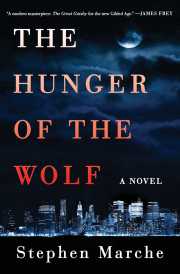 A “body [found] in the snow is that of Ben Wylie, the heir to America’s second-wealthiest business dynasty, and it is found in a remote patch of northern Canada. Far away, in post-crash New York, Jamie Cabot, the son of the Wylie family’s housekeepers, must figure out how and why Ben died. He knows the answer lies in the tortured history of the Wylie family, who over three generations built up their massive holdings into several billion dollars’ worth of real estate, oil, and information systems despite a terrible family secret they must keep from the world.”
A “body [found] in the snow is that of Ben Wylie, the heir to America’s second-wealthiest business dynasty, and it is found in a remote patch of northern Canada. Far away, in post-crash New York, Jamie Cabot, the son of the Wylie family’s housekeepers, must figure out how and why Ben died. He knows the answer lies in the tortured history of the Wylie family, who over three generations built up their massive holdings into several billion dollars’ worth of real estate, oil, and information systems despite a terrible family secret they must keep from the world.”
How Shakespeare Changed Everything
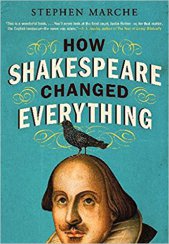 Nearly four hundred years after his death, Shakespeare permeates our everyday lives: from the words that we speak, to the teenage heartthrobs we worship, to the political rhetoric spewed by the 24-hour news cycle. In the pages of this wickedly fun little book, Esquire columnist Stephen Marche uncovers the hidden influence of Shakespeare in our culture.
Nearly four hundred years after his death, Shakespeare permeates our everyday lives: from the words that we speak, to the teenage heartthrobs we worship, to the political rhetoric spewed by the 24-hour news cycle. In the pages of this wickedly fun little book, Esquire columnist Stephen Marche uncovers the hidden influence of Shakespeare in our culture.
William Shakespeare was the most influential person who ever lived. He shaped our world more than any political or religious leader, more than any explorer or engineer. The gifted playwright who moves audiences to laughter and tears has also moved history. Do any other poets even begin to change our behavior or our environment? W.H. Auden once wrote that “poetry makes nothing happen. It exists in the valley of its saying where executives would never want to tamper.” Shakespeare has wandered away from the valley of his saying and hangs around in the most unlikely places, in 1950’s teen rebel movies and in psychoanalysts’ offices, in nightclubs and in mall food courts, in voting booths in the American South and in the trash of Central Park. The effects of his words on the world have been out of all proportion, monstrous and sublime, vertiginous in their consequences, far beyond anything he could have predicted.
Shining at the Bottom of the Sea
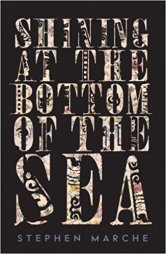 In this stylistic tour de force, Stephen Marche creates the entire culture of a place called Sanjania—its national symbols, political movements, folk heroes, a group of writers dubbed “fictioneers,” a national airline called Sanjair, and a rich literary history. Sanjania is an island nation whose English-speaking citizens draw upon the English, American, Australian, and Canadian literary traditions. This brilliant novel is an anthology, taking the reader from the rough and tumble pamphlets of 1870s Sanjania to the burgeoning Sanjanian nationalistic awareness in the 1930s literary journal, The Real Story, to the extraordinary longing of the writings of the Sanjanian Diaspora. These works develop into a Rashomon-like story, introducing us to illustrious Sanjanian figures such as the repentant prostitute Pigeon Blackhat and the magically talented couple Caesar and Endurance. The result is a vibrant evocation of a country—from the birth pangs of its first settlers and their hardy vernacular to is revolutionary years and all the way to the present—all told in Stephen Marche’s innovative and accomplished writing.
In this stylistic tour de force, Stephen Marche creates the entire culture of a place called Sanjania—its national symbols, political movements, folk heroes, a group of writers dubbed “fictioneers,” a national airline called Sanjair, and a rich literary history. Sanjania is an island nation whose English-speaking citizens draw upon the English, American, Australian, and Canadian literary traditions. This brilliant novel is an anthology, taking the reader from the rough and tumble pamphlets of 1870s Sanjania to the burgeoning Sanjanian nationalistic awareness in the 1930s literary journal, The Real Story, to the extraordinary longing of the writings of the Sanjanian Diaspora. These works develop into a Rashomon-like story, introducing us to illustrious Sanjanian figures such as the repentant prostitute Pigeon Blackhat and the magically talented couple Caesar and Endurance. The result is a vibrant evocation of a country—from the birth pangs of its first settlers and their hardy vernacular to is revolutionary years and all the way to the present—all told in Stephen Marche’s innovative and accomplished writing.
http://search.illinoisheartland.org/search/title.aspx?ctx=263.1033.0.0.3&cn=1181961
Raymond + Hannah

This boldly contemporary love story combines sex and seriousness, physical lust and spiritual longing. Raymond and Hannah hook up at a party; a one-night stand expands into a weeklong passionate and surprisingly deep love affair. Then Hannah leaves for a year in Jerusalem. With six thousand miles separating their bodies, the energy of love and lust must be sublimated to the written word. While Hannah immerses herself in Torah and the Orthodox world of Jerusalem, Raymond remains in multicultural Toronto, working on his dissertation on Robert Burton’s The Anatomy of Melancholy.
Over the school year, Hannah’s growing love for her Jewishness is more and more at odds with her love for a blond, blue-eyed WASP. And Raymond, pining in Toronto, seems to be living out his dissertation before he’s even written it. Can this new love affair survive distance, cultural dissonance, and out-of-sync, late-night e-mails?
In this remarkable debut, carnal love confronts religion and culture, and modern passion finds its counterpoint in ancient texts.
Share this:


